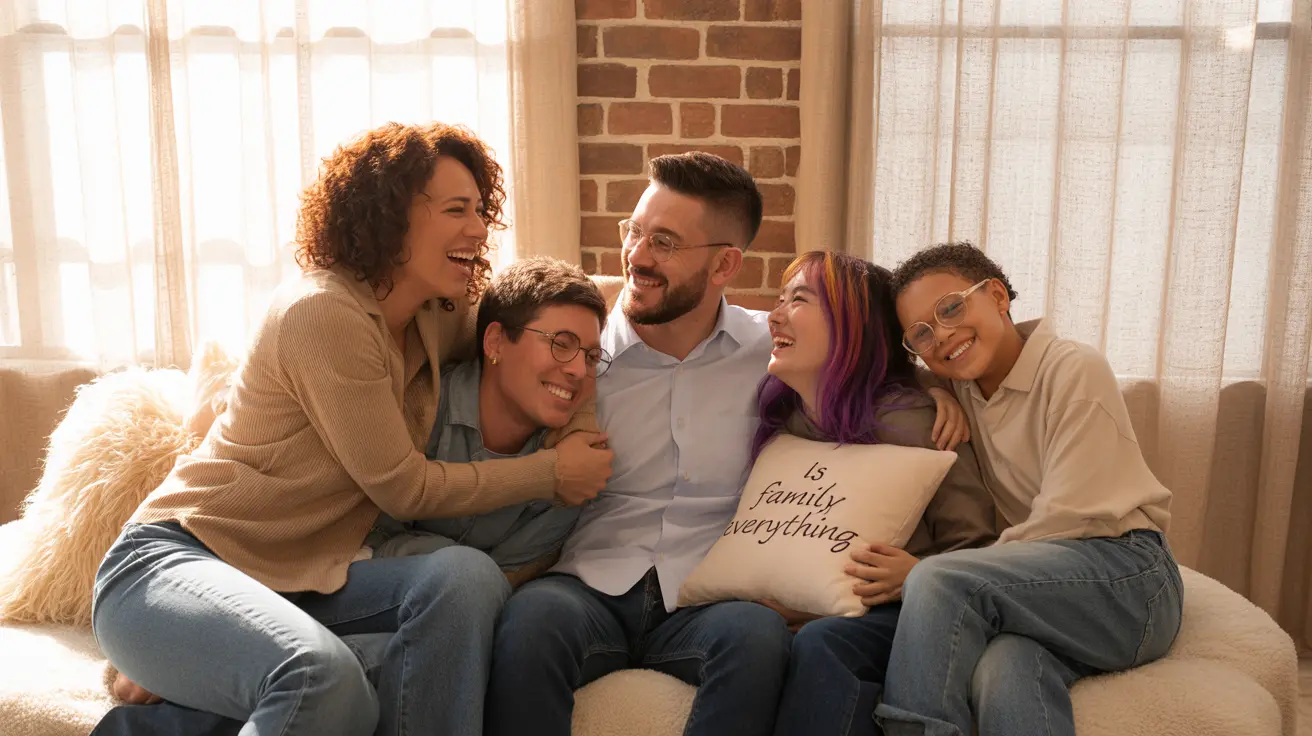In today's diverse and evolving society, the concept of family extends far beyond traditional biological connections. A chosen family represents the meaningful relationships we cultivate with individuals who provide the love, support, and acceptance that everyone deserves, regardless of genetic ties. These intentional bonds can be just as significant – and sometimes more nurturing – than traditional family relationships.
Whether formed out of necessity or choice, chosen families play a vital role in many people's lives, offering emotional support, understanding, and a sense of belonging that may be missing from their biological family dynamics. This comprehensive guide explores the meaning, importance, and impact of chosen families in modern society.
What Defines a Chosen Family
A chosen family consists of individuals who deliberately choose to create deep, family-like bonds with one another, despite having no biological relation. These relationships are built on mutual trust, shared values, and genuine care for each other's well-being. Unlike biological families, chosen families are formed through conscious decision-making and emotional connection rather than genetic ties.
The Historical Significance of Chosen Families
Chosen families have historically been crucial for marginalized communities, particularly LGBTQ+ individuals who may have faced rejection from their biological families. During the AIDS crisis of the 1980s and 1990s, chosen families became essential support systems, providing care and emotional comfort when traditional family structures were absent or unsupportive.
Benefits of Creating a Chosen Family
Emotional Support and Understanding
Chosen families often provide a level of emotional support that may be unavailable elsewhere. These relationships are typically founded on deep understanding and acceptance, allowing individuals to be their authentic selves without fear of judgment.
Shared Experiences and Values
Members of chosen families often share similar life experiences, challenges, or values, creating a strong foundation for mutual support and understanding. This commonality can lead to more meaningful connections and a deeper sense of belonging.
Flexibility and Growth
Unlike biological families, chosen families can evolve and adapt over time. Members can be added or relationships can naturally change, allowing for personal growth and the development of diverse support networks.
Building and Maintaining a Chosen Family
Creating Strong Foundations
Building a chosen family requires intentional effort and commitment. Key elements include:
- Clear communication and boundaries
- Mutual respect and trust
- Consistent support and presence
- Shared experiences and traditions
- Regular check-ins and quality time
Nurturing Relationships
Maintaining chosen family bonds requires ongoing dedication and care. This includes celebrating successes together, supporting each other through difficulties, and creating meaningful traditions that strengthen connections over time.
Frequently Asked Questions
What does chosen family mean and how is it different from biological family?
A chosen family is a group of people who intentionally create family-like bonds without biological relation. Unlike biological families, which are determined by genetics, chosen families are formed through conscious choice, shared values, and mutual care. These relationships are based on trust, understanding, and genuine connection rather than obligation.
Why do people form chosen families instead of relying on their biological relatives?
People may form chosen families for various reasons, including lack of support from biological family members, geographical distance, shared life experiences, or the need for deeper understanding and acceptance. Some individuals may have experienced rejection, abuse, or neglect from their biological families, making chosen families essential for emotional well-being.
How can chosen families provide emotional support and a sense of belonging?
Chosen families offer emotional support through consistent presence, understanding, and acceptance. They create safe spaces for authentic self-expression, celebrate achievements, provide comfort during difficult times, and foster a sense of community and belonging through shared experiences and mutual care.
Who most commonly forms chosen families and what are the historical reasons behind this?
Historically, chosen families have been particularly important in LGBTQ+ communities, marginalized groups, and among individuals who face family rejection. During periods of social discrimination and the AIDS crisis, chosen families became crucial support systems, providing care, acceptance, and community when traditional family structures were unavailable or unsupportive.
What are practical ways to build and maintain a healthy chosen family?
To build and maintain a healthy chosen family, focus on establishing clear communication, setting healthy boundaries, and creating shared traditions. Regular check-ins, consistent support, and mutual respect are essential. Celebrate important moments together, be reliable during difficult times, and actively work to strengthen bonds through quality time and shared experiences.




